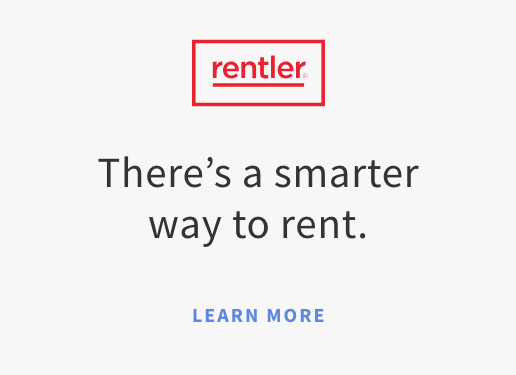Here are a few things you should know about rental fees, especially if you’re renting an apartment for the first time. We’ll break down how much typical rental application fees should be, how to pay them, and what to look out for in terms of potential issues that may violate rental application fee laws.
What to know about rental application fees
The rental application fee is supposed to cover the cost of processing your application.
Your potential future landlord might want to run a credit check, background check, and other types of verification, all of which usually cost a small amount of money. When presented with an apartment application fee, don’t hesitate to ask specifically what your rental application checks.
It’s also a good idea to ask about timelines and other policies, such as minimum accepted credit scores, how long it takes to process the application, what service they’re going to use to do a background check (i.e., whom they’re giving your data to), and how many other applications they have going at that moment.
The rental application fee laws vary from state to state.
As you’ll see below, you should definitely research your state’s laws on apartment application fees before beginning your housing search. Though the answer to the question “Are application fees for apartments legal?” is almost always yes, some states, like California, have a flat limit on the amount a landlord can charge a tenant.
Others have laws that prevent landlords from charging more than the cost of the tenant screening reports. The general advice given to landlords is that the typical rental application fee isn’t meant to be a revenue generator, but it’s common to include a reasonably minimal “service fee” for the landlord’s time and effort put into processing the applications.
The rental application fee usually varies from about $25 to $100.
This depends on your market and state rental application fee laws, of course. Some unregulated states can go up to $200 for an apartment application fee, and places like condos or co-op boards can sometimes be closer to $300.
If your application fee is starting to get into the larger triple or quadruple digits, it’s time to do some research on that potential landlord and make sure they can provide an itemized rental application fee receipt with a breakdown of reasonable expenses.
The lease application form should always include an itemized rental application fee receipt.
While there are some specific laws requiring this in various states, it’s always a good idea to ask for an itemized receipt of your rental application fee. Usually, this should outline the exact amount of the background check, credit check, or any other checks they’re processing. If your landlord refuses to give you a this itemized rental application fee receipt (or if something just doesn’t feel right), it’s worth re-evaluating if this is someone you really want as your landlord.
The rental application fee isn’t the same thing as an apartment viewing fee or good faith deposit.
Frankly, an apartment viewing fee is a pretty common red flag that the landlord might not be legit. (A good rule of thumb is that you shouldn’t pay anything before seeing a place in person.) And apartment viewing fees and apartment application fees are different from a “good faith deposit,” where you put down a bit of non-refundable money to take the apartment off the market while you decide.
Eventually, that good faith deposit can usually be applied to your security deposit. Just make sure you know exactly how much each fee is as outlined in the lease application form, what it’s being used for, and if it’s refundable before you write out that check!
The rental application fee is often non-refundable.
Again, there are some states with laws about this, but be prepared to ask your landlord about their refund policies. A good guideline is that your apartment application fee should be refunded if it isn’t being used for its specific purpose. Some landlords will refund your application fee if they decide to go with another tenant before running your background check, but others might not.
Also, don’t be too surprised if your landlord requests the fee in a specific way (cash or check), as well. Some landlords prefer cash to keep things moving quickly, and others prefer a personal check or certified check as an extra way to verify that you’re a legit grownup with a bank account and a previous address. No matter what method you use, always, always get that receipt.
The rental application fee might be able to be applied elsewhere if you’re approved.
Obviously, not every landlord will do this, and it’s not a typical guideline within a lease application form, but it doesn’t hurt to ask. If you’re approved, some landlords will take that rental application fee and apply it toward your first month’s rent or security deposit.
The rental application fee is usually charged to each person on the lease.
Because each credit check or background check needs to be run separately, it makes sense that a landlord would charge a rental application fee for each person. However, if one person’s results cause the landlord to reject your group’s application, the landlord is often required to (1) refund the money for the credit checks that they haven’t yet run and (2) provide the reason for rejecting the application in writing.
Consider talking with your roommates about any potential hiccups in your histories that might result in a rejected application, like a low credit score or prior evictions. Getting ahead of any of these issues can save you and your potential landlord a lot of wasted time (and money!), so consider taking a look at free credit monitoring sites to get a ballpark estimate of what your credit scores are before even submitting your lease application form.




